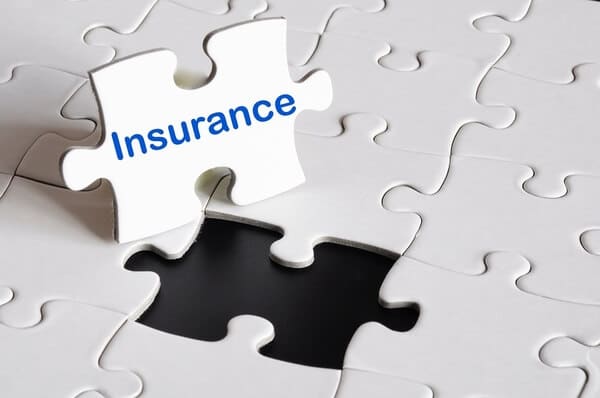Many people make the mistake of assuming that once they have created a will, they have completed the estate planning process. Instead, there is a wide variety of estate planning tools that may be even more useful to you than a will. You will also likely need to update your will periodically as your life changes through the years.
Protect Wealth Academy has built this handy estate planning checklist to get you thinking about which estate planning tools would be the most helpful for your unique situation. Using this list and the other resources at Protect Wealth Academy can help you avoid some of the most common pitfalls in estate planning.
Creating a Will: What a Will Can and Cannot Do
Developing your will is one of the few steps in the estate planning process that virtually everyone knows. A will is a legal document that sets out whom you would like to inherit your property after you pass. It also has some other valuable functions that may not be as well known, including:
- Naming a guardian to care for young children
- Setting up testamentary trusts
- Naming an executor who will pay your final expenses, debts, and tax obligations
- Creating trusts for the care of your children
- Bequesting assets or property to charities
A will cannot deal with non-probate property, such as life insurance, payable-on-death accounts, joint accounts, real estate with the right to survivorship, retirement accounts, and assets in a living trust. It also cannot leave adequate funeral instructions or place conditions on gifts. If you have a special needs loved one, a will cannot establish a means to care for that person. Wills are also a poor way to reduce your estate taxes and must be probated, which can be expensive and time-consuming.
Incorporating Trusts Into Your Plan
To account for a will’s shortcomings, many people choose to create trusts to accomplish other estate planning goals. For example, because you cannot leave specific instructions for the care of a special needs loved one in a will, you may want to create a special needs trust to fulfill this need. A special needs trust appoints a trustee to care for your loved one and distribute and manage funds as necessary.
There are a variety of other types of trusts that you can also use to accomplish your estate planning goals, such as:
- Spendthrift trusts
- Charitable trusts
- Land trusts
- Tax by-pass trusts
- Asset protection trusts
- Totten trusts
- Living trusts
Trusts can be extremely useful tools to make your estate plan much more specific. They are also a good way to reduce or avoid estate taxes. Administration of trusts is also significantly faster and more cost-effective than going through the entire probate process.

Healthcare Directives
Estate planning is more than just planning for after your passing. It also encompasses health care decisions while you are living as well. You can explicitly set out your desires for your healthcare should you become unable to communicate these preferences in the future, such as after an accident or after you develop a severe health condition, such as dementia.
A health care declaration or living will, paired with a healthcare power of attorney, will permit someone else that you know and trust to make your healthcare decisions for you if you are unable to make medical decisions yourself. Without these documents, your loved ones may be left to guess at what you would have wanted when you cannot communicate.
Financial Power of Attorney
Another vital piece of the estate planning package is the financial power of attorney. Much like the healthcare power of attorney, this document designates someone that will make your financial decisions if you are unable to do so. This person can be permitted to make only very specific decisions (such as regarding a particular piece of real estate), or he or she can handle every aspect of your day-to-day finances.
File Beneficiary Forms
Because many assets that are “payable on death” do not pass through your will or in a trust, you need to be sure that your beneficiaries are in order on those items. These include any asset that automatically reverts to someone else when you pass. It usually includes bank accounts, retirement funds, stocks, bonds, and brokerage accounts.
Many people make the mistake of assuming that these often valuable assets will be addressed in their will, but they are not. You need to take extra steps to name specific beneficiaries for these assets. Sometimes that includes filling out additional paperwork to designate a beneficiary formally.

Life Insurance
Life insurance is also an important part of your estate planning process. It does not pass through your estate, so it is important to name a beneficiary for this asset as well. In many situations, life insurance can be even more valuable than the other assets you provide to your beneficiaries. The proceeds from the life insurance can be used for your funeral, to pay outstanding debts, and to provide revenue for your loved ones while they adjust to life without your income.
Funeral Expenses and Final Arrangements
Paying for your funeral can be an enormous financial strain on your loved ones. You can set up a prepayment plan, or you can create a payable-on-death account at your bank. The bank account is much faster and often more reliable than prepayment plans, but there is no way to ensure that the money is actually used to pay for your funeral.
You should also be sure to set out your wishes regarding the disposition of your body. Would you like a traditional burial service or cremation? Will you donate your organs? You should think about all of these aspects and write them down to share with your executor. Do not use your will to communicate these wishes as your will may not be read until several weeks after you pass. By then, your family may have had to already guess regarding what you wanted.
You should also ensure that your executor has access to all of your relevant documents regarding your estate, including information on bank accounts, debts, investments, insurance policies, real estate, trusts, wills, etc. While you do not need to necessarily keep all of these items in the same place, you should have the means to communicate their location with your executor.
Protect Wealth Academy has an exceptional library of resources to help you create an estate plan that works for your unique needs. Sign up for a free membership today.